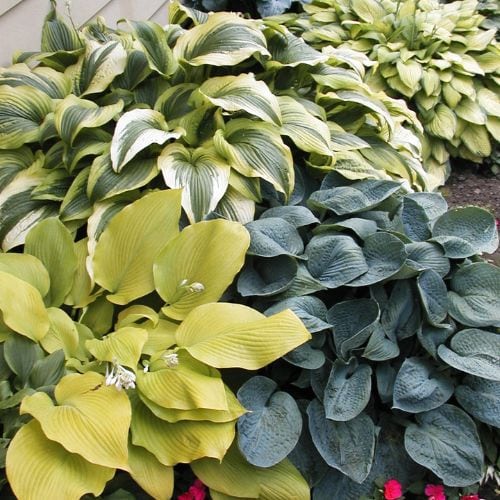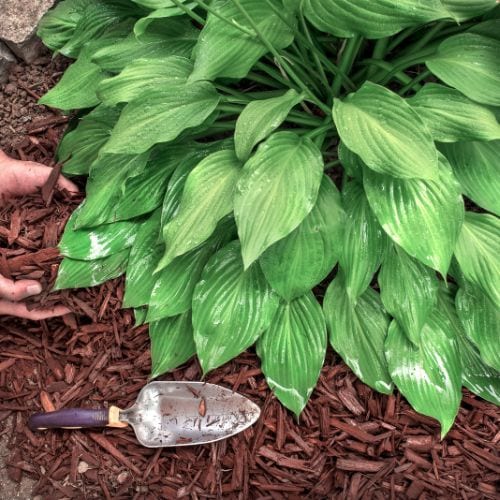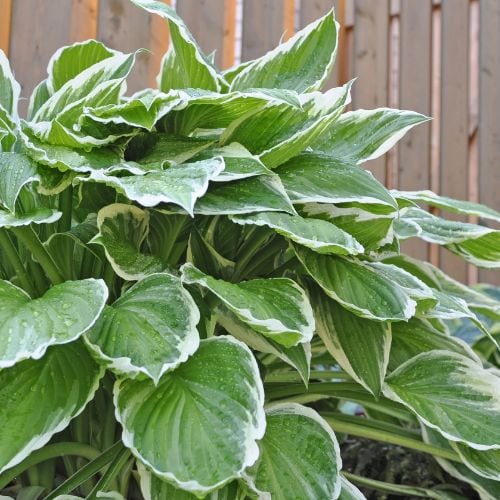Table of Contents
The Best NPK Ratio for Fertilizing Hostas: 10-10-10
When it comes to fertilizing hostas, the best NPK ratio to use is 10-10-10. This ratio provides the perfect balance of nitrogen, phosphorus, and potassium for hostas to thrive. Nitrogen helps promote healthy foliage growth, phosphorus helps with root development, and potassium helps with overall plant health.
Using a 10-10-10 fertilizer will ensure that your hostas get the nutrients they need to stay healthy and look their best. It’s important to note that you should only fertilize your hostas once or twice a year, as over-fertilizing can cause damage to the plants.
When applying the fertilizer, make sure to spread it evenly around the base of the plant and water it in well. This will help the nutrients reach the roots and be absorbed by the plant.
By using a 10-10-10 fertilizer, you can be sure that your hostas will get the nutrients they need to stay healthy and look their best.
Understanding the pH Range of 6.5 to 7.6 for Hostas
If you’re a hosta enthusiast, you know that the pH range of 6.5 to 7.6 is ideal for these beautiful plants. But what does that mean, exactly? Let’s break it down.
The pH scale is a measure of acidity or alkalinity. It ranges from 0 to 14, with 7 being neutral. Anything below 7 is acidic, and anything above 7 is alkaline. So, the ideal pH range for hostas is slightly acidic to slightly alkaline.
The pH range of 6.5 to 7.6 is ideal for hostas because it allows them to absorb the nutrients they need from the soil. If the pH is too low, the soil will be too acidic and the hostas won’t be able to absorb the nutrients they need. If the pH is too high, the soil will be too alkaline and the hostas won’t be able to absorb the nutrients they need.
It’s important to test your soil regularly to make sure it’s in the ideal pH range for hostas. If it’s not, you can adjust the pH by adding lime or sulfur to the soil.
By understanding the ideal pH range for hostas, you can ensure that your plants get the nutrients they need to thrive. If you’re not sure about the condition of your soil, head over to Amazon and purchase a test kit today!
The Benefits of Compost-Rich Soil for Hostas
Compost-rich soil is a great choice for growing hostas. Not only does it provide essential nutrients for the plants, but it also helps to improve the soil structure and drainage. Here are some of the benefits of using compost-rich soil for hostas:
1. Nutrient-rich: Compost is full of essential nutrients that hostas need to thrive. It contains nitrogen, phosphorus, and potassium, as well as trace elements like iron, zinc, and manganese. This helps to ensure that your hostas get the nutrition they need to stay healthy and strong.
2. Improved soil structure: Compost helps to improve the structure of the soil, making it easier for the roots of the hostas to penetrate and absorb water and nutrients. This helps to promote healthy growth and reduce the risk of disease.
3. Improved drainage: Compost helps to improve the drainage of the soil, which is important for hostas. Poor drainage can lead to root rot and other problems. Compost helps to keep the soil loose and well-draining, which helps to keep the hostas healthy.
4. Improved water retention: Compost helps to improve the water retention of the soil, which is important for hostas. It helps to keep the soil moist and prevents it from drying out too quickly. This helps to ensure that the hostas get the water they need to stay healthy.
Compost-rich soil is an excellent choice for growing hostas. It provides essential nutrients, improves the soil structure and drainage, and helps to retain water. With the right care and attention, your hostas will thrive in compost-rich soil.

How to Choose the Right Fertilizer for Hostas in Zones 3-8
Choosing the right fertilizer for your hostas in zones 3-8 can be a bit tricky. But don’t worry, we’ve got you covered! Here are some tips to help you make the best choice for your hostas.
First, consider the type of soil you have. Hostas prefer a soil that is slightly acidic, so if your soil is too alkaline, you may need to add some sulfur to lower the pH.
Second, consider the type of fertilizer you need. Hostas need a balanced fertilizer with a ratio of 10-10-10 or a light application of 20-20-20. This will provide the right amount of nitrogen, phosphorus, and potassium for healthy growth.
Third, consider the time of year. Hostas should be fertilized in the spring and fall. In the spring, use a slow-release fertilizer to give your hostas a boost of nutrients. In the fall, use a fertilizer with a higher potassium content to help your hostas prepare for winter.
Finally, consider the amount of fertilizer you need. Too much fertilizer can burn your hostas, so it’s important to follow the directions on the package.
By following these tips, you can choose the right fertilizer for your hostas in zones 3-8. With the right fertilizer, your hostas will be healthy and beautiful for years to come!

Can You Fertilize Hostas With Miracle Gro?
Yes, you can fertilize hostas with Miracle Gro. Miracle Gro is a popular brand of fertilizer that is specifically designed for use on flowers, vegetables, and other plants, and there’s even an organic option you can purchase in hardware stores or online. It contains a balanced blend of nitrogen, phosphorus, and potassium, which are essential nutrients for healthy plant growth. Miracle Gro also contains micronutrients that help promote strong root growth and lush foliage. When used as directed, Miracle Gro can help keep your hostas looking their best.
What Does Epsom Salt Do For Hostas?
Epsom salt is a great way to help your hostas thrive! It’s a natural mineral compound made up of magnesium and sulfate, and it can be used to help your hostas grow bigger and stronger. Epsom salt helps to improve the soil structure, making it easier for the hostas to absorb nutrients. It also helps to reduce the amount of soil compaction, which can lead to root rot. Additionally, Epsom salt helps to increase the availability of essential nutrients like nitrogen, phosphorus, and potassium, which are all important for healthy hosta growth. Finally, Epsom salt can help to reduce the amount of weeds in your garden, as it can act as a natural weed killer. So, if you’re looking for a way to give your hostas a boost, Epsom salt is a great option!


